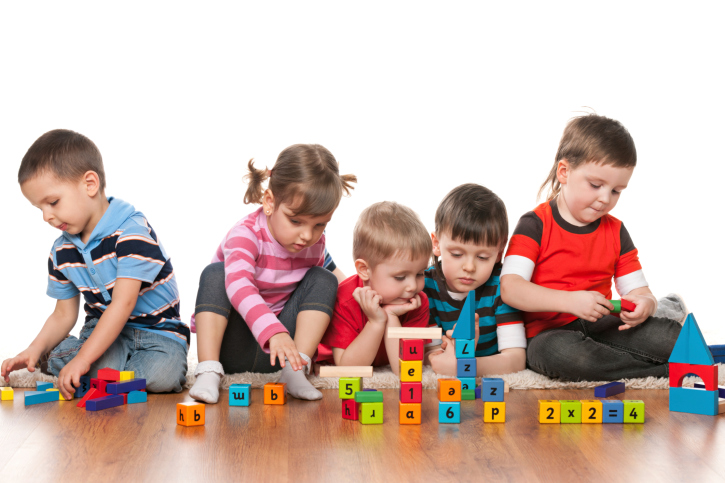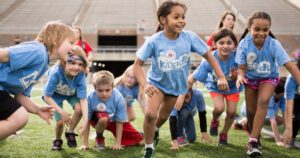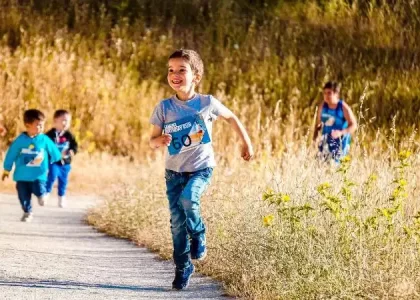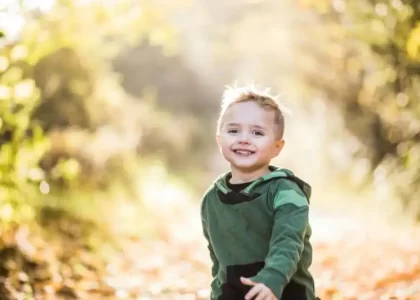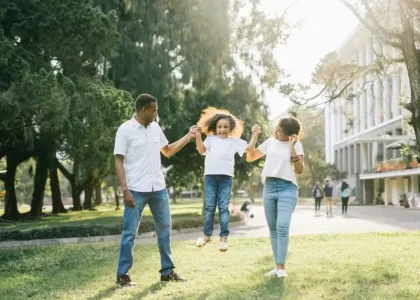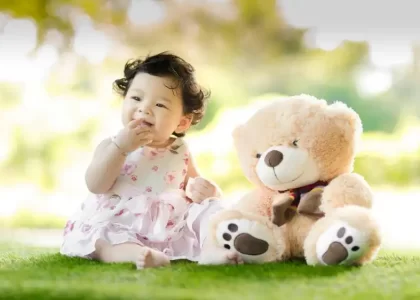SOCIAL & EMOTIONAL DEVELOPMENT IN PRESCHOOLERS
When does social and emotional development begin?
Babies start learning these skills from birth! As soon as they begin interacting with the people who care for them, they begin to develop an understanding of feelings.
What is social-emotional development in preschoolers?
The social-emotional development begins with parental bonding to the child. This bonding allows the mother to respond to the child’s needs timely and soothe their newborn. The consistent availability of the caregiver results in the development of “basic trust” and confidence in the infant for the caregiver during the first year of life. Basic trust is the first psychosocial stage described by Erickson. This allows the infant to seek for parents or the caregiver during times of stress.

Social-emotional development includes the child’s experience, expression, and management of emotions and the ability to establish positive and rewarding relationships with others. OR
Social and emotional development means how children start to understand who they are, what they are feeling, and what to expect when interacting with others. It is the development of being able to: Form and sustain positive relationships. Experience, manage and express emotions.

Social Development In Early Childhood:
Social development in early childhood is an important part of a person’s overall health, well-being, and happiness throughout his or her life. Social development is very closely linked to cognitive and emotional development, and together these developmental markers and milestones build the foundation for developing relationships with other people, coping with stressful situations, and many other skills. Healthy social development is especially important as a child enters school. Social development involves children’s ability to interact with others and regulate their own behavior. Identifying these milestones in young children can be difficult if you are unfamiliar with them.
Social Development Of Pre-School Children:
During your children’s preschool years, they’ll discover a lot about themselves and interact with people around them. Once they reach age three, your child will be much less selfish than they were before. They’ll also be less dependent on you, a sign that their own sense of identity is stronger and more secure.

Example of social development in early childhood?
Social development involves children’s ability to interact with others and stage, most children typically begin to Share toys and take turns. Begin engaging in pretend play. regulate their own behavior.
The main areas of social-emotional development:
Social-emotional development consists of three main areas of children’s self-regulation in
1) Acting (behaving in socially appropriate ways and ways that foster learning),
2) Feeling (understanding others’ emotions and regulation of one’s own emotions).
3) Thinking (regulating attention and thoughts).

How Long Does It Take To develop social & Emotional Skills?
Social-emotional growth takes time. Early experiences with family, caregivers, and peers greatly impact social and emotional development, but throughout our lives, we will continue to be shaped by our experiences! These experiences can include meeting new people, overcoming difficult situations, or even raising children.
Social-Emotional Developmental Milestone In Preschool:
Age 3
-
Copies adults and friends
-
Shows affection for friends without prompting
-
Takes turns in games
-
Always asks questions such as “what is this, “why is this”?
-
Shows concern for a crying friend
-
Dresses and undresses
-
Understands the idea of “mine” and “his” or “hers”
-
Shows a wide range of emotions
-
Separates easily from family members
-
May get upset with major changes in routine
-
Some may be possessive, not ready to share their favorite toys or something
By 3 years of age, the child engages more in interactive play, masters his aggression and learns cooperation and sharing skills. He can play with 1 or 2 peers, with turn-taking play and joint goals. Imaginative and fantasy play begin like pretending to be a cat and role-play skills develop. The child, however, cannot yet distinguish between reality and imagination and it is common to be afraid of imaginary things.

Age 4
-
Enjoys doing new things
-
Is more and more creative with make-believe play
-
Would rather play with other children than alone
-
Cooperates with other children
-
Plays “Mom” or “Dad” (Especially female babies)
-
Often can’t tell what’s real and what’s make-believe
-
Talks about what he or she likes and is interested in
-
Shows interest to share toys or something
-
Some may be naughty and kick or lash others.
-
Always active in any kind of activity.
The master skill is to differentiate between real and imaginary around 4 years of age. They enjoy playing tricks on others and are worried about being tricked themselves. Imaginary scenarios and play skills are developing and becoming more complex. They can play with 3 to 4 peers, with more complex themes and pretend skills.
Age 5
-
Wants to please friends
-
Wants to be like friends
-
Is more likely to agree with rules
-
Likes to sing, dance, and act
-
Is aware of gender
-
Can tell what’s real and what’s make-believe
-
Shows more independence
-
Wish to interact more with peer group
-
Start to use more vocabulary and sentences
-
They may sometimes be demanding and sometimes cooperative
At 5 and 6 years of age, the child can follow simple rules and directions. He learns adult social skills like giving praise and apologizing for unintentional mistakes. He likes to spend more time in peer groups and relates to a group of friends. Imaginative play gets more complex.
-
Preschoolers and Social-Emotional Development
Let’s take a closer look at these aspects of social-emotional development:
Relationships with others
Preschoolers engage in pretend to play with friends and use words and sentences to express their feelings and thoughts. Even though they may still need adult support to share toys and materials with friends, they improve on their own as time passes.
Preschoolers also improve in their ability to understand and appropriately respond to their friends’ feelings. Children with healthy social-emotional development have a balance of all these components.
Self-awareness
Preschoolers improve their ability to control their bodies during different activities throughout the day (e.g., sitting at circle time or playing in the gym), take turns and have conversations with peers, acknowledge and use their own names and the names of others,
Emotional regulation
Preschoolers display a variety of emotions in different ways. For example, they may say, “I’m upset!” They may match facial expressions to happy, mad, sad, or they may laugh when excited. At the same time, they improve their ability to manage their emotions to match the situation and environment and to control their emotions (e.g., separate easily from family members).
Independence
Preschoolers may start identifying a favorite friend and ask to play, independently play with toys and materials, try on the dress, go to the bathroom, eat themselves, drink, pour water from water bottle to another glass, wash glass, undress, wearing shoes, brushing, etc. They can speak more sentences and words.
Social-Emotional Activities for Preschoolers
Let us check some activities which are very good for social and emotional development for preschoolers.
Play is important for all areas of preschooler development, including emotional development. Through play, preschoolers can practice managing strong emotions like excitement, anger, and frustration. Play ideas to develop preschooler emotions positively. Other games and plays are:-
-
Ball Games. Ball games are a relatively simple way for younger children to build relationships and confidence.
-
Roleplay. Roleplay is a great way for children to experiment with social behavior, rules and expectations. …
-
Stories. Everyone likes stories. Through these activities, they can develop their imagination power.
-
Puppets. It will develop children’s observation, concentration, imagination, enjoyment, and vocabulary also.
-
Listening Games. Develop participation, listening ability, motor skills, and rapport making.
-
Songs. Develop their listening ability, cognitive power, self-control, vocabulary.
-
Games. Develop motor skills, the relation becomes more strengthen and learn rules and how to behave in group play.
-
Sports. Develop the decision making power, motor skill development, and interpersonal skills
-
Collaborative learning: This will help to develop patience, participation, rapport making, and adjustment in a group, knowingly or unknowingly improving human values such as helping others, sharing mentality, listening to others, etc

